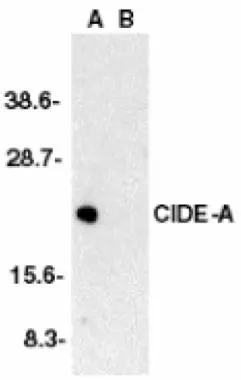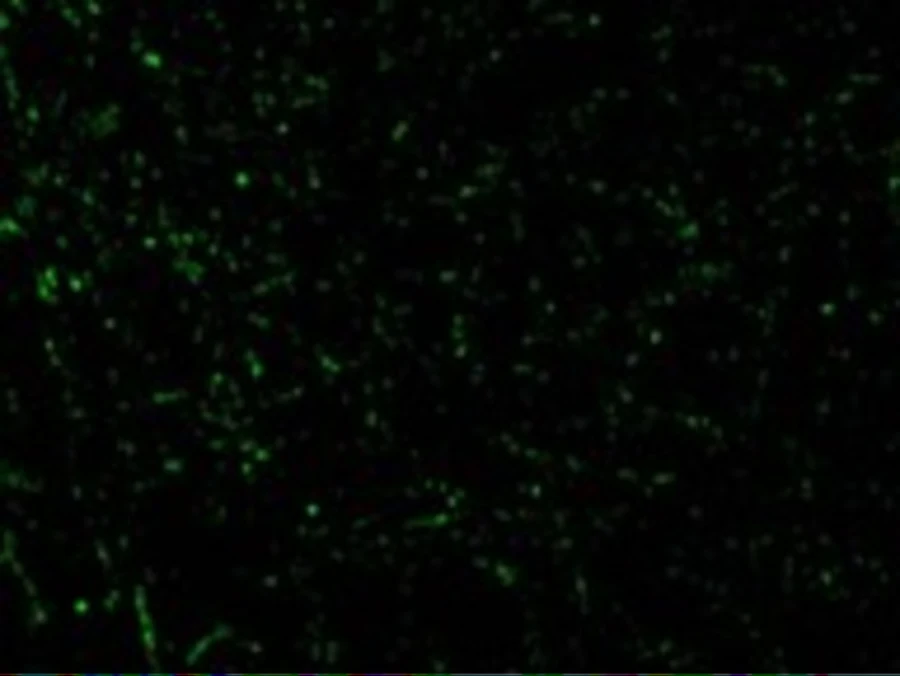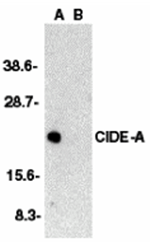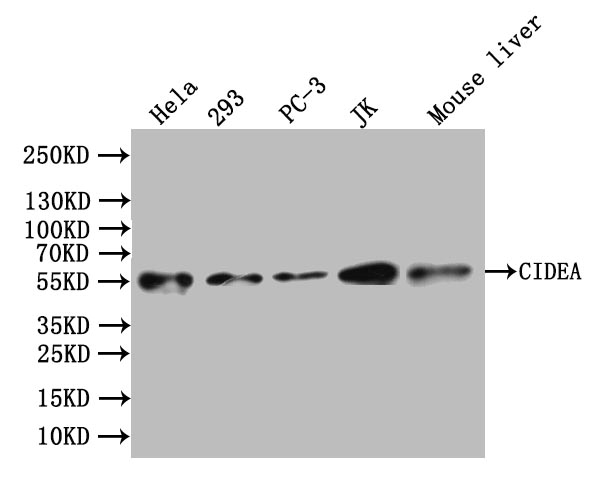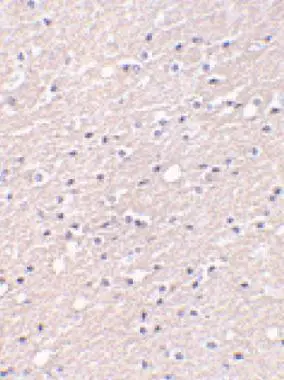
Immunohistochemical staining of CIDE-A in human brain tissue with CIDE-A antibody (GTX25692) at 5μg/ml
CIDE A antibody
GTX25692
ApplicationsWestern Blot, ELISA, ImmunoHistoChemistry, ImmunoHistoChemistry Paraffin
Product group Antibodies
ReactivityHuman
TargetCIDEA
Overview
- SupplierGeneTex
- Product NameCIDE A antibody
- Delivery Days Customer9
- Application Supplier NoteWB: 0.5microg/ml. *Optimal dilutions/concentrations should be determined by the researcher.Not tested in other applications.
- ApplicationsWestern Blot, ELISA, ImmunoHistoChemistry, ImmunoHistoChemistry Paraffin
- CertificationResearch Use Only
- ClonalityPolyclonal
- ConjugateUnconjugated
- Gene ID1149
- Target nameCIDEA
- Target descriptioncell death inducing DFFA like effector a
- Target synonymsCIDE-A, lipid transferase CIDEA, cell death activator CIDE-A
- HostRabbit
- IsotypeIgG
- Protein IDO60543
- Protein NameLipid transferase CIDEA
- Scientific DescriptionThis gene encodes the homolog of the mouse protein Cidea that has been shown to activate apoptosis. This activation of apoptosis is inhibited by the DNA fragmentation factor DFF45 but not by caspase inhibitors. Mice that lack functional Cidea have higher metabolic rates, higher lipolysis in brown adipose tissue and higher core body temperatures when subjected to cold. These mice are also resistant to diet-induced obesity and diabetes. This suggests that in mice this gene product plays a role in thermogenesis and lipolysis. Alternatively spliced transcripts have been identified. [provided by RefSeq, Aug 2010]
- ReactivityHuman
- Storage Instruction-20°C or -80°C,2°C to 8°C
- UNSPSC12352203

